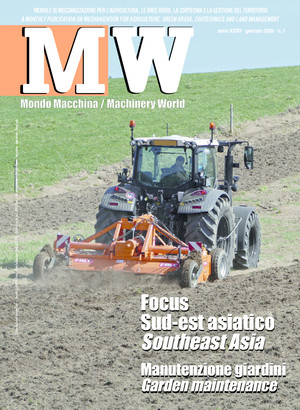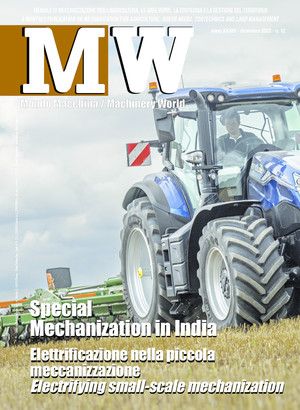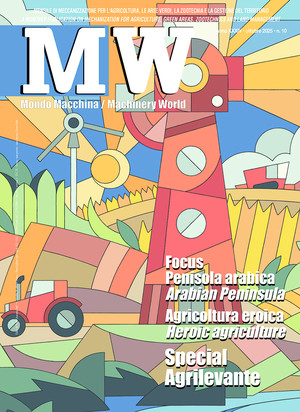
Mechanization: the European agenda of FederUnacoma
The proposal put forward by FederUnacoma for the 70th anniversary of the Treaties of Rome. Key points of the agenda include the relaunch and streamlining of incentives, support for research and the requalification of the vehicle fleet
Since the signing of the Treaties of Rome on March 25, 1957, agricultural mechanization, especially in Italy, has been the operational arm of the common agricultural policy, the instrument that has made the strategic indications of the European institutions practicable. Today, mechanical technologies and digital systems are even more essential to achieving an increasingly sustainable and quality European model of agriculture. This is what the president of FederUnacoma, Mariateresa Maschio, stated during the event entitled “Agricoltura è”, which took place in Rome from 24 to 26 March in partnership with the association of agricultural machinery manufacturers.
Investments in R&D, a complex scenario. Innovation in agricultural processes and workmanship is a fundamental step towards achieving the objectives outlined by the CAP, and reiterated on 25 March by the European Commissioner for Agriculture and Food Christophe Hansen, in his speech at the event in Rome. Innovation, however, is possible in a solid production framework with margins for investing in research and technological development, and this is increasingly difficult today. The economic situation remains negative at a global level - said the president of FederUnacoma - and in Italy we are witnessing drops in sales and exports, made more uncertain by the current geopolitical situation and the trade tensions mentioned by President Sergio Mattarella in his speech that opened the event". “In Italy, instead of making room for new generation vehicles – stated the president of the manufacturers' association – there is an increase in the sale and purchase of used vehicles and this significantly risks weakening the production capacity of farm”. In 2023 alone, out of 17,600 newly registered tractors, 52,800 second-hand tractors were purchased in Italy. These vehicles frequently have been operating for more than 20 years and are not able to meet the needs of modern agriculture.
The European Agenda for Mechanization. For this reason, according to the manufacturers' association, it is necessary to consider a specific agenda for mechanization in support of current European agricultural policies, some points of which have been reported to the European Commissioner for Agriculture Christophe Hansen: participation of the sector in defining the technical criteria for allocating funds, a regulation for the revision of tractors of all engine sizes, provisions on technological matters developed for specific sectors. “This agenda cannot ignore the relaunch and streamlining of national and European public incentives to support the market, nor support for research activities, which – explained Mariateresa Maschio – require huge investments, which individual companies struggle to provide, especially in the presence of an unfavorable economic situation such as the current one”. Another priority for FederUnacoma is the identification of new sectors of application for agromechanical technologies, such as bioenergy supply chains, strategic for reducing dependence on fossil fuels, and land maintenance to combat soil erosion.
Agricultural landscapes in the heart of Rome. For the “Agricoltura è” event FederUncoma transformed the central Piazza della Repubblica into a large showcase of Italian excellence, with scenes of rural landscapes of Peninsula. Following last summer's success at the G7 agriculture conference with its displays of agricultural machinery and landscapes in some squares in Syracuse, the manufacturers' association has put on display, among the historic buildings, the monumental fountain and the gardens of the Roman square, some vehicles that are symbols of Italian technology: an agricultural robot, a multifunctional electric telescopic lift and six latest-generation, high-powered and specialized tractors, technological jewels that testify to the quality of Italian industry and the historic role that mechanization has had in the development of the European agricultural model. The Association was present for the entire three-day “Agriculture è” event. “Seeing powerful tractors and glimpses of the countryside right in the center of town was not only a surprise and a means to draw the attention of the public – commented Simona Rapastella, General Manager of FederUnacoma – but also a precise message to citizens and consumers: agriculture is increasingly sustainable thanks to the use of high-tech mechanical vehicles. The quality of food comes from agricultural processes, from increasingly ecological machinery that know how to use natural resources intelligently and delicately handle products from the field to the table”.








